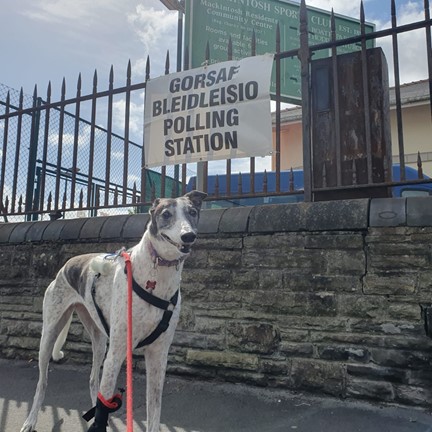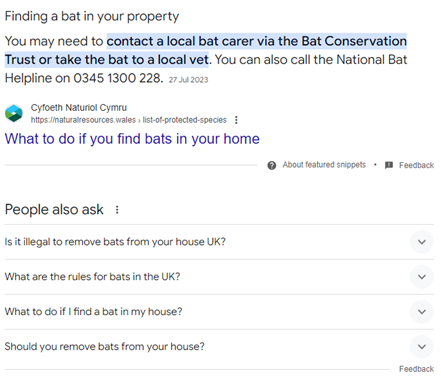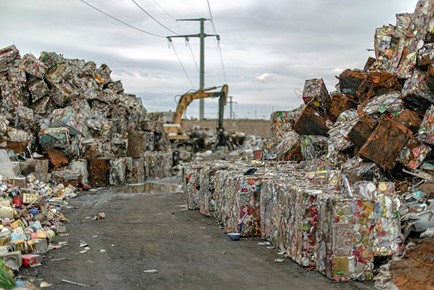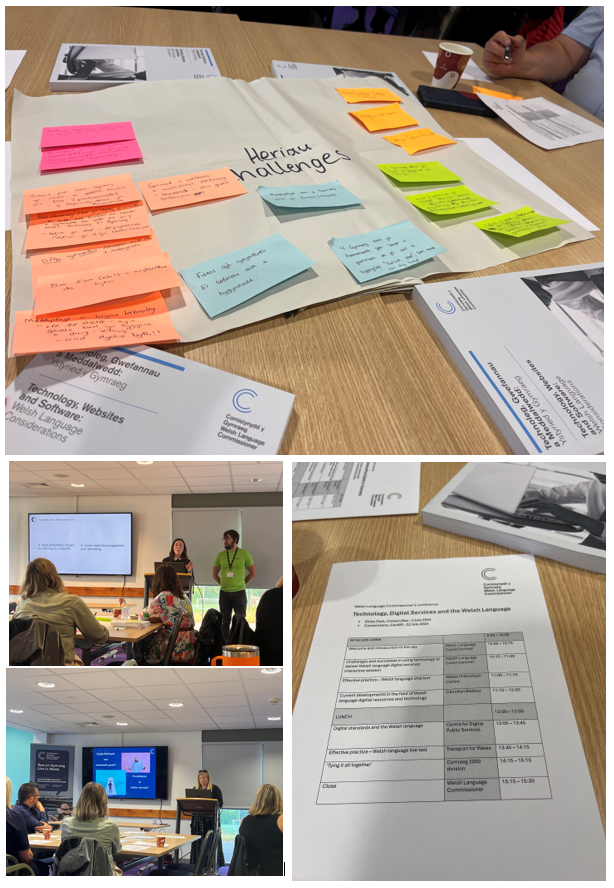Weeknotes 05/07/2024
Summer hid away again for most of this week. The big news for many people will have been the UK general election. This is Maisy casting her vote:

But meanwhile in the Digital Team…
Reviewing our agricultural content
James and Shaun have set-up a meeting with Catherine Hancock from the Land Regulatory Approaches Team to review the agricultural content on our website.
We’ve long been aware that our web content for farmers is scattered around the website in siloes based on legislation.
We’re previously spoken to farmers during our hazardous waste and waste exemptions discoveries, and during user research for grants to plant trees. But we’ve never talked to them in a more general sense about their user needs.
As well as working for NRW Catherine is a farmer so it will be useful to get her perspective about whether our content meets the user needs of farmers. Catherine also has contacts in the wider agricultural community.
We’ll be looking to:
- gather user needs for farmers, specific to NRW
- gather information from our operational teams and any teams that may get regular queries from farmers – what are they asking our teams for, what do they need to know about, why do farmers contact our teams etc?
- get any insight into where farmers deal with us directly instead of through agents or farming unions
- get any insight into the other websites that farmers need to use, for instance Welsh Government / Farming Connect / Rural Payments Wales / Union information
Digital and Permit Reform planning session
We had a session to plan the next steps in user research and content design between the Digital Team and the Permit Reform Group.
We’ve talked in previous weeknotes about how we’ve decided to work on species licensing as the first area of improving our permitting services.
In the meeting this week we discussed how we would run workshops for the species licensing team and our Customer Hub to get their views about:
- who their users are
- how they see the licensing process internally
- the goals, tasks and pain points of their users
- how they would improve the service
Engaging with the subject matter experts in this way helps bring them along on the journey and helps us better design the user research process.
Fly-tipping
The team are working with colleagues from Fly-tipping Action Wales, a partnership sponsored by Welsh Government and coordinated by NRW.
Their own website will be coming to an end soon so we’ve been thinking about how any content could be moved to the main NRW website, and whether it should be.
Much of the task-focused content on their website is already on the NRW site including reporting a fly-tipping incident and checking if someone has a licence to take away waste. Advice for householders and businesses on moving and disposing of waste also exists already. This means we won’t copy their content on a similar topic and move it across as it would confuse users. We need to ensure the user need is met once.
Fly-tipping Action Wales do lots of comms work, so a big focus for them will be working with comms on blogs, news, social media and newsletters.

User insights from Google’s ‘people also ask’
Sam joined a Content Folks session on ‘Things move fast and content can too’ with Sarah Richards and Rachel Edwards from Content Design London.
It was good to be reminded of quick ways to find out what users are searching for, such as focusing on ‘people also ask’.

This led to Sam finding a ‘people also ask’ aggregator called AlsoAsked. It looks good, easy to use and certainly insightful, so we’ll be exploring that more.
Temporary waste rules
‘Regulatory decisions’ - which could be described as temporary waste rules - have reasserted themselves once again this week.
We’ve talked about temporary waste rules in weeknotes past.
Waste policy colleagues have made some changes to the titles to help reduce the length. This will make it easier for users to find and scan them.
They also want to add legal wording to help enforce them. This could pose a challenge as it will make them more difficult for people to understand and therefore, possibly, comply with.
There’s currently nothing we are able to do with the content from a content design perspective, other than to help users find the pages through better titles and good meta data.
We understand they are generally for niche circumstances. However, the task they are broadly about, for example, ‘burning wood’, could bring users to them. Users may find the content doesn’t meet their need but we cannot offer them other content to move on to.
It would be interesting to gather user feedback on them – we’ll see what we can do.

Exploring our new learning management platform
Heledd met with Victoria and Gwennan from our Learning Management System team to understand how we can use our new in-house platform to host bite-sized training about:
- digital content
- accessibility
- agile delivery
- user-centred design
We’re looking forward to being able to use the platform to share more pro-active hints and tips to help our colleagues understand more about best practice and design better experiences for people.
Welsh language tech developments
Heledd attended a workshop in Colwyn Bay about the latest Welsh language tech developments. The field has come a long way but organisations are still facing similar challenges. She also found that it was mainly Welsh language officers and digital officers at the event, and not technical specialists.
Introducing our Digital Team virtual office
We’re trialling the idea of a virtual office for our team - a regular time slot where we can send messages and drop in and out when we need to.
This aims to replicate the way we might ask each other questions throughout the day if we were in a physical office.
It also gives us a chance to talk with our colleagues and hear about some of the issues that might be affecting them.
Attendance is voluntary - the idea is that if we see that someone has started the meeting, we can join to help our team mate if we’re available. If we have something to discuss but no one is on the call, we can ask if anyone’s free via our regular Teams channel.
Other things we’ve been working on this week:
- Toyah and Sam have been working on our marine licensing content, including designing two versions of the application form: one that links to GOV.UK Pay and one that doesn’t. They’re also arranging workshops over the summer with our subject matter experts to plan out how and when the new content will go live
- Sam, Phil and Kim have been working on making sure there are consistent patterns in our online forms. This includes the form themes and buttons. She’s also been discussing integrating the content from our microsite ‘Fly Tipping Action Wales’ in our main website
- Lucinda has been working through the accessibility report for our new Flood Warning Information Service
- Shaun finished a new page about phosphorus permit limits after months of updates. He’s also been discussing the best way to communicate a new paid advice service that we are introducing for development and planning
- Owain has been working on testing the Umbraco patch for our main website and the Wales Coast Path website. He has also been reworking the weeknotes landing page, so watch this space for an update!
